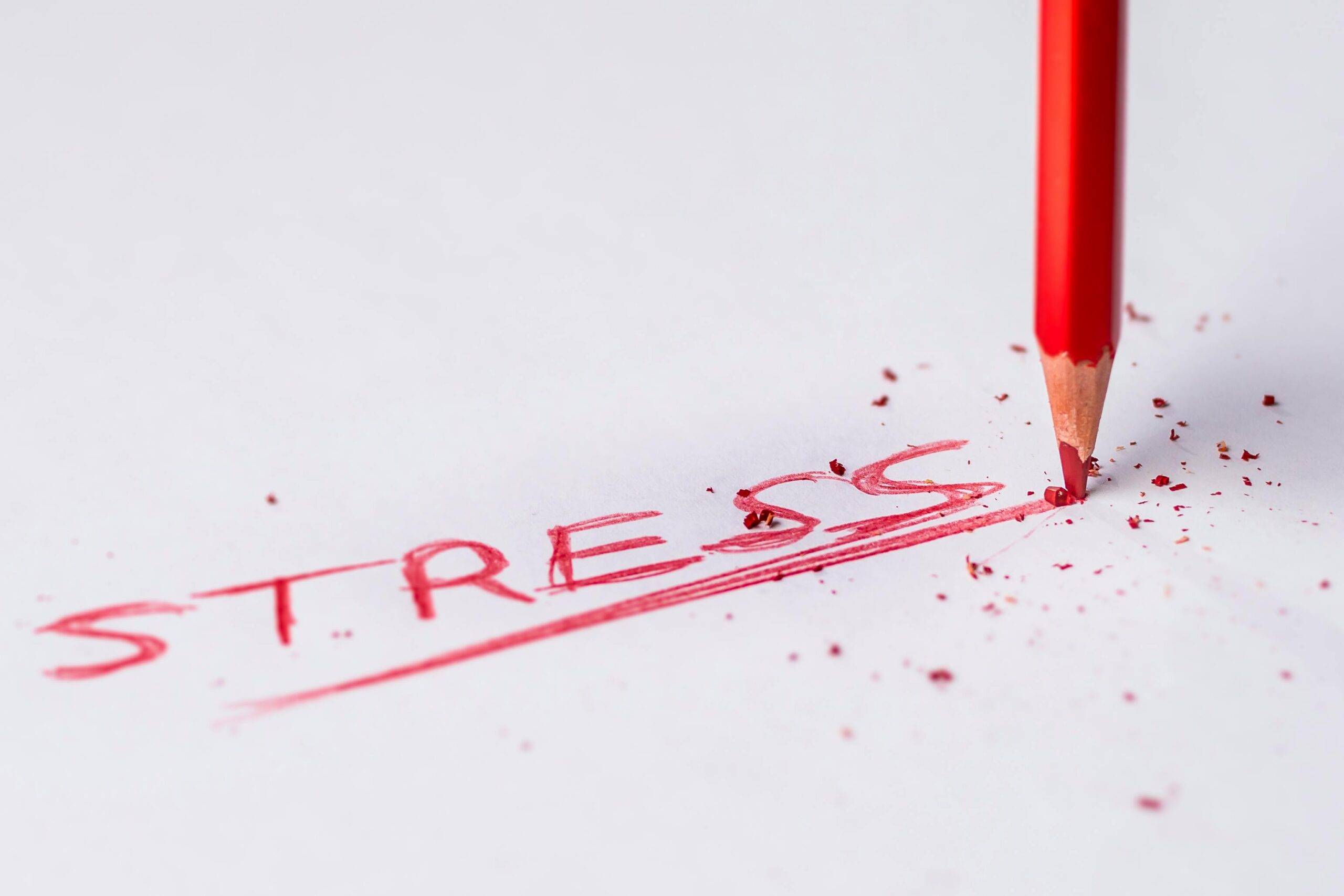
When stress hits and cortisol levels rise, some supplements can really help out. Many folks have found natural ways to deal with stress better. Here’s a few supplements you might find helpful:
- Adaptogenic Herbs: These herbs help your body adjust to stress.
- Vitamin B Complex: This one’s great for boosting energy and supporting brain health.
- Magnesium: Known for its relaxing effects, magnesium is a must-have.
- Omega-3 Fatty Acids: They might help lower inflammation and stress.
Checking these out might help you feel a bit more relaxed and balanced in life.
Read also: The Ultimate Guide to the Best Yoga Mats on Amazon in 2025
Understanding Cortisol and Stress
What is Cortisol?
Cortisol, often called the “stress hormone,” comes from your adrenal glands and plays a big role in a bunch of body functions like:
- Regulating metabolism
- Influencing immune responses
- Managing blood sugar levels
When you’re stressed, a lot of people notice mood and energy shifts due to cortisol.
The Link Between Cortisol and Stress
Cortisol and stress are closely related. When you’re stressed, cortisol levels go up. If stress is here to stay, those levels can stay high, which isn’t great for your health.
Here’s a few signs that your cortisol might be too high:
- Increased anxiety and irritability
- Trouble sleeping
- Weight gain, particularly around your waist
Understanding this connection is key since managing stress can help keep those cortisol levels in check.
Read also: My Top 5 Picks for Adjustable Dumbbells 100 lbs on Amazon
Effects of Elevated Cortisol on the Body
When cortisol spikes, your body reacts in different ways, often bringing on annoying symptoms like:
- Weight Gain: Especially around your belly, which can be super frustrating.
- Sleep Issues: Struggling to catch those Z’s can leave you feeling drained.
- Digestive Problems: Things like bloating or other gut troubles.
These are just a few of the headaches that high cortisol can cause.
Long-Term Health Risks with High Cortisol
If high cortisol sticks around, it could lead to some serious health issues like:
- Heart Problems: Increased risk of high blood pressure and heart disease.
- Type 2 Diabetes: Blood sugar could get out of whack.
- Weak Immune System: You might catch colds more often.
Knowing about these risks really shows how important it is to manage stress and keep cortisol levels balanced.
Types of Supplements for Stress Relief
Now that we’ve covered how high cortisol can affect you, let’s take a look at some solutions. There are different types of supplements that can help ease stress and manage cortisol.
Adaptogenic Herbs
Adaptogenic herbs like Rhodiola and Ashwagandha are popular for helping balance your stress response. A lot of people, including my friend Jane, find them super helpful during tough times. Here’s how they work:
- Boosting your ability to manage stress
- Balancing hormone levels
- Reducing fatigue
Vitamin B Complex
The Vitamin B complex is fantastic for stress relief. It includes vitamins like B6 and B12 that are crucial for boosting energy and lifting your mood. My buddy Mark noticed a real boost in his energy and mood after adding these vitamins to his routine.
Here are some benefits:
- Supporting brain health
- Increasing energy production
- Keeping your mood steady
Magnesium
Magnesium plays a big part in relaxing your muscles and cutting down stress. Lots of folks, like Lisa, find that getting enough magnesium helps them feel calmer and sleep better. A few key points to remember:
- Helps keep cortisol levels balanced
- Supports nerve function
- Promotes relaxation
Omega-3 Fatty Acids
Omega-3 fatty acids are awesome for your mental health. Found in fish oil and flaxseeds, they can help lower inflammation and boost brain function. For Tom, adding Omega-3s to his meals really helped his mood and eased anxiety.
Benefits include:
- Reducing anxiety symptoms
- Protecting heart health
- Supporting brain function
These supplements can genuinely help you feel more balanced and ease stress, paving the way for a healthier lifestyle.
Read also: The 5 Best Pre Workout Supplements for Beginners (2025 Edition)
How Supplements Help Lower Cortisol Levels

Let’s get into how these natural options can help bring down cortisol levels and promote calm.
Mechanisms of Action for Stress-Relief Supplements
Supplements tackle stress in different ways. For example, adaptogenic herbs like Ashwagandha can help cut cortisol production by:
- Regulating Hormonal Balance: They help keep your adrenal function healthy, which lowers cortisol levels.
- Boosting Resilience: By improving energy and mental clarity, they assist your body in handling stress better.
For my friend Sarah, adding these herbs really made a difference in her anxiety levels.
Scientific Evidence Supporting the Efficacy of Supplements
The benefits of these supplements aren’t just talk; there’s solid research to back them. Many studies have shown their effects on cortisol levels. For example:
- Adaptogens: Research indicates Rhodiola can significantly lower cortisol during high-stress times.
- Omega-3 Fatty Acids: Studies suggest that regular intake can help with stress and anxiety levels.
These findings, plus personal stories, really empower people to manage stress well and back up the use of these supplements.
Read also: Best Rated Protein Powder for Women in 2025
Dosage and Considerations
As you look into these stress-relief supplements, thinking about dosages is key to getting the most benefits.
Recommended Dosages for Different Supplements
Knowing the right amounts helps you use these supplements effectively. Here are some guidelines to keep in mind, but remember personal needs can vary:
- Adaptogenic Herbs:
- Ashwagandha: 300-500 mg per day
- Rhodiola: 200-400 mg per day
- Vitamin B Complex:
- About 50-100 mg for most B vitamins daily, depending on your needs.
- Magnesium:
- Daily intake is usually around 310-420 mg, based on your age and gender.
- Omega-3 Fatty Acids:
- About 1,000 mg of EPA and DHA combined each day is a good guideline.
My colleague John found that starting with lower doses and slowly increasing helped him understand how his body reacted.
Considerations Before Starting a Supplement Plan
Before diving into a new supplement routine, keep these important points in mind:
- Talk to a Healthcare Provider: Always check in with a professional, especially if you have any health issues or are on medications.
- Quality of Supplements: Go for trusted brands that test their products for purity and effectiveness.
- Watch Your Body’s Response: Pay attention to how you feel after starting; you might need to adjust things.
By being mindful about dosages and these considerations, you can safely and effectively enhance your stress management efforts.
Healthy Lifestyle Habits for Stress Management

Along with supplements, it’s super important to embrace healthy habits that support a balanced mindset.
The Importance of Balanced Diet and Regular Exercise
Eating right and keeping active are vital for good health and stress management. After switching to a Mediterranean diet packed with fruits, veggies, whole grains, and healthy fats, my friend Sarah felt a huge lift in her mood and energy.
Key points include:
- Balanced Diet:
- Eat a variety of nutrients to nourish your body and mind.
- Foods rich in antioxidants and omega-3s can boost brain health.
- Regular Exercise:
- Aim for about 150 minutes of moderate aerobic activity each week.
- Activities like jogging, swimming, or brisk walking can release endorphins that help ease stress.
Mindfulness Practices and Stress Reduction Techniques
Besides eating healthy and working out, mindfulness can really cut stress down. Emily, who loves yoga, found that adding meditation to her routine helped her stay calm during tough moments.
Here are some techniques to try:
- Meditation: Even a few minutes each day can help you chill out and focus.
- Deep Breathing Exercises: Taking slow, controlled breaths can activate your body’s relaxation response.
- Journaling: Writing down your thoughts can help clear your mind and reduce anxiety.
By combining healthy eating, regular activity, and mindfulness, you can create a solid plan for managing stress. These lifestyle habits work together with the benefits of supplements, leading to overall improved well-being.
Seeking Professional Guidance
As you begin your journey to manage stress and lower cortisol levels, getting professional help is a smart step to ensure a safe and effective approach.
Read also: Supplements to Lower Cortisol: Your Secret Weapon Against Stress
Consulting Healthcare Providers Before Starting Supplements
Before jumping into a new supplement routine, it’s a good idea to talk to a healthcare provider. My friend Lisa learned this the hard way when she started a bunch of supplements without guidance.
Here’s why speaking with a pro is important:
- Personalized Recommendations: Health professionals can give you tailored advice based on your health history and current situation.
- Identifying Possible Interactions: They can explain how supplements might interact with your medications.
- Safety: Not every supplement suits everyone; they can help you avoid unwanted side effects.
Other Questions
How to get rid of high cortisol due to stress?
To lower elevated cortisol levels resulting from stress, concentrate on techniques for managing stress, maintaining a healthy lifestyle, and possibly using supplements. . These consist of engaging in regular physical activity, practicing mindfulness, getting enough sleep, maintaining a balanced diet, and reducing the intake of caffeine, alcohol, and nicotine. 1
Does vitamin C reduce cortisol?
Indeed, taking vitamin C supplements can lower cortisol levels. ,especially in cases of ongoing stress or high cortisol levels. Research indicates that vitamin C can reduce the rise in cortisol and other stress-related hormones, such as DHEA-S, in people under significant stress. 2
Can vitamin B12 lower cortisol?
Vitamin B12 is essential for overall well-being and may contribute to stress management. There is no conclusive evidence indicating that it reduces cortisol levels. . B vitamins, such as B12, are recognized for their role in promoting a healthy nervous system, which may help the body cope with stress more effectively and could influence cortisol levels. 3
What lowers cortisol overnight?
To reduce cortisol levels during the night, concentrate on enhancing the quality of sleep, using relaxation methods, and establishing a soothing nighttime routine . This involves reducing caffeine and alcohol intake in the evening, making sure your sleeping environment is dim, peaceful, and cool, and participating in calming activities such as reading or meditating. 4
Integrating Supplements with Existing Treatment Plans
If you’re already on a treatment plan, adding supplements should be done with care. Working closely with your healthcare provider is really important. Like John, who wanted to take Omega-3s while on antidepressants, he made sure to talk to his doctor first.
Here are some things to consider when combining:
- Monitoring Effects: Regular check-ins help you see how the supplements affect your treatment.
- Adjusting Dosages: Since supplements can change how medications work, you might need to tweak your dosages.
- Holistic Approach: Combining supplements with lifestyle changes and therapy can boost your overall well-being.
By seeking professional guidance, you’ll make sure your path to stress relief is both safe and effective, leading to better health and well-being.
This video is taken from Dr. Matt Angove’s page.
Did you find this helpful or have something to add? Let us know in the comments section!
Reference- hcahoustonhealthcare ((↩))
- pubmed ((↩))
- henryford ((↩))
- medicalnewstoday ((↩))






